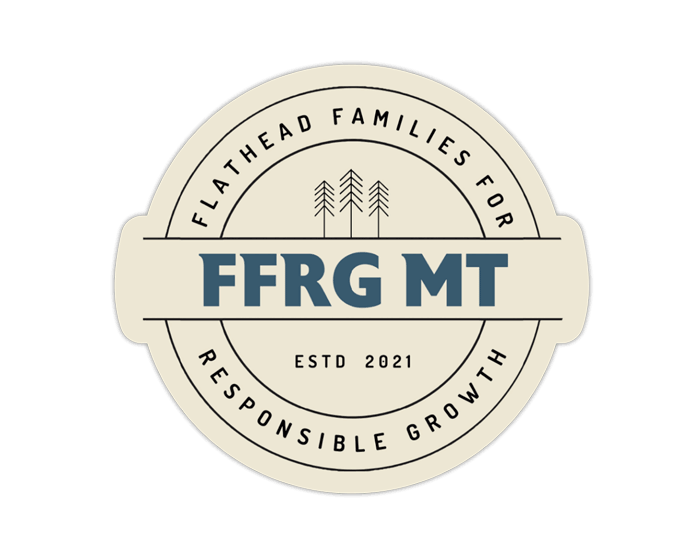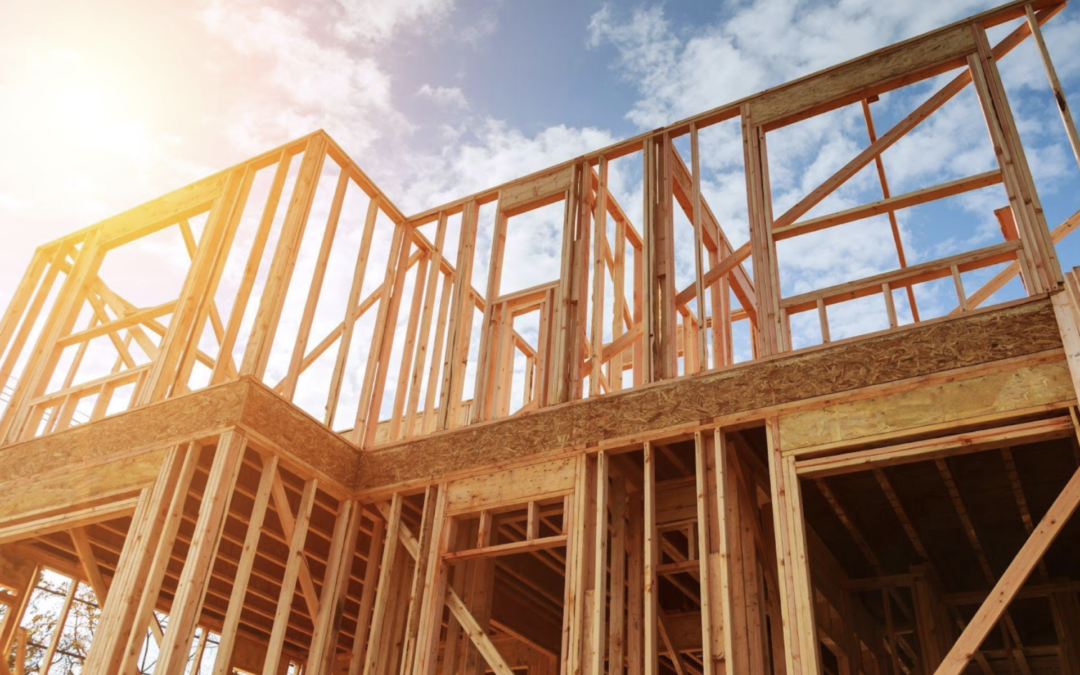Written by FFRG Executive Director Alyssum Ahler, January 23, 2024
Legislative Changes: SB 382 – Montana Land Use Planning Act
Senate Bill 382, or the Montana Land Use Planning Act, which was signed into law in May 2023, is a 53-page law, which significantly changes how developments are approved. Under the new law, the local government is to emphasize public participation and comment during the creation or updating of its growth policy. It requires a growth policy for any city of over 5,000 people in a county of over 70,000 people. That currently includes ten cities: Bozeman, Helena, Billings, Great Falls, Missoula, Kalispell, Columbia Falls, Whitefish, Belgrade and Laurel. The law further stipulates that once growth policy or regulations are adopted, review of site-specific developments are to occur at the city staff level, with very limited public comment or participation, if any.
These changes in the participation process have caused concern for many opponents of the law. Namely, cutting the public out of the land use decision-making process (except on appeal) may violate citizens’ right to procedural due process found in the 14th amendment to the U.S. Constitution as well as the right to participate in governmental decisions set forth in the Montana Constitution.
Legal Challenge: Montanans Against Irresponsible Densification (MAID) Lawsuit
On December 15, 2023, a coalition of homeowners named Montanans Against Irresponsible Densification (MAID), filed a lawsuit that challenges the constitutionality of four laws passed by this year’s legislature including SB382, SB245, SB323, and SB528.
The suit takes particular issue with SB 382, the Montana Land Use Planning Act, stating that its changes to the public review process “is in violation of both the letter and the spirit of Montana’s public participation constitutional requirement and must be declared unconstitutional.”
Preliminary Injunction: Temporary Halting of Laws
On December 29, 2023, a Gallatin County District Court judge issued an injunction pursuant to the complaint filed by Montanans Against Irresponsible Densification (MAID), to stop two of the laws from going into effect. The two blocked laws are Senate Bill 323, which would require cities with 5,000 residents or more to allow duplex housing on any home lot, and Senate Bill 528, which would require cities to adopt regulations allowing more construction of accessory dwelling units.
Left in effect, for now, are the Montana Land Use Planning Act (enacted as Senate Bill 382) and Senate Bill 245, which mandates cities with 7,000 residents or more to permit apartment-style housing in the majority of commercially zoned areas.
In his conclusion Gallatin County District Judge Salvagni stated “ that unless this order is entered, SB 323 and SB 528 will go into effect as of January 1, 2024. These measures, calculated to increase density in single-family zoned areas of Montana’s cities, will result in irreparable injury to the members of the Plaintiff LLC. These include: deprivation of the members’ constitutional right of public participation; unfair and invidious discrimination against single-family owners who must now absorb an arbitrary and disproportionate burden of increased density as opposed to those who are protected by restrictive covenants; and an arbitrary imposition of various conditions, including many who are similarly situated, but are treated differently because they reside in cities that either fall within or outside of the arbitrary definitions in the challenged measures.”
Legal Analysis: key arguments from the MAID plaintiffs, cited in Judge Salvagni’s order
1. Plaintiff argues that two classes, otherwise similarly situated, are treated differently on an arbitrary basis.
- One class constitutes those homeowners who are protected by private, restrictive covenants. The other class is those who are absolutely similarly situated, and in fact, live just across the street in some circumstances, and have no such protections.
The result of the new laws is that two different sets of people, one protected by restrictive covenants, the other not, results in an arbitrary application of Montana law which is unrelated to any legitimate governmental purpose. As a consequence, Plaintiff is likely to succeed on the equal protection claim.
2. Plaintiff asserts that these and other problems indicate that little thought, and certainly little coordination, was given to what appears to be the frantic rush for “densification” of Montana’s 13 cities. The effort by the Montana Legislature to write an entirely new review and approval regime for zoning, subdivisions and annexation, may have resulted in pervasive arbitrariness which runs afoul of both the Equal Protection and the Due Process clauses of the Montana Constitution.
- For example, as Plaintiff’s counsel argued the cities of Hamilton and Polson both have populations of over 5,000, but they are not located in counties of at least 70,000 in population. The cities of Columbia Falls, Whitefish, and Laurel, on the other hand, all of over 5,000 residents, do sit in counties of over 70,000 in population. There does not appear to be any reason in public policy or in the professed justification of addressing affordable housing that supports the entirely arbitrary distinctions between these similarly-situated cities. Yet one set is obligated to comply with the burdensome strictures of SB 382, while the other set is not.
- In the meantime, the newly-enacted SB 323, requires “duplexes” in all cities of 5,000 with no caveat that such cities must be located in counties of at least 70,000 in population.
It appears that the disparity in treatment between those protected by restrictive covenants and those not so protected, and the chaotic, uncoordinated, and arbitrary applicability requirements in these various new laws are so arbitrary and capricious and so unrelated to a legitimate governmental purpose that they likely constitute a denial of Plaintiff’s rights to Due Process of Law.
3. Plaintiff has established that one of the main intents behind the new measures was to cut back on public participation at the project-specific stage—i.e., the stage at which new developments most imminently threaten Montana’s living in single-family neighborhoods. Instead, Plaintiff argues the intent of the new set of laws is to “front load” public comment at the land use plan development stage and to cut it back later.
- It appears that this public participation “front loading” is discriminatory. It applies only to those qualifying cities (i.e. those of over at least 5,000 residents in counties of a population of over 70,000). There is no reason in public policy that the fundamental rights of persons residing in Columbia Falls and Kalispell (to participate in deliberations of the government) are less than those in Polson, a city of 5,000, but not in a county of 70,000.
The Court concludes Plaintiff has a likelihood of success on the merits of the issues under Article II, Sections 8 and 9 of the Montana Constitution regarding public participation.
Upcoming Developments: Trial and Growth Policy Updates
The district judge appears to agree with the plaintiff’s suit and it will be interesting to see what happens as the case moves to trial. Meanwhile, SB 382, mandating a comprehensive growth policy update, and Senate Bill 245, necessitating cities with 7,000 residents or more to permit apartment-style housing in commercial zones, remain unaffected. Cities undergoing growth policy updates, such as Whitefish and Columbia Falls, will persist in moving forward, ensuring compliance with the existing legislation.

